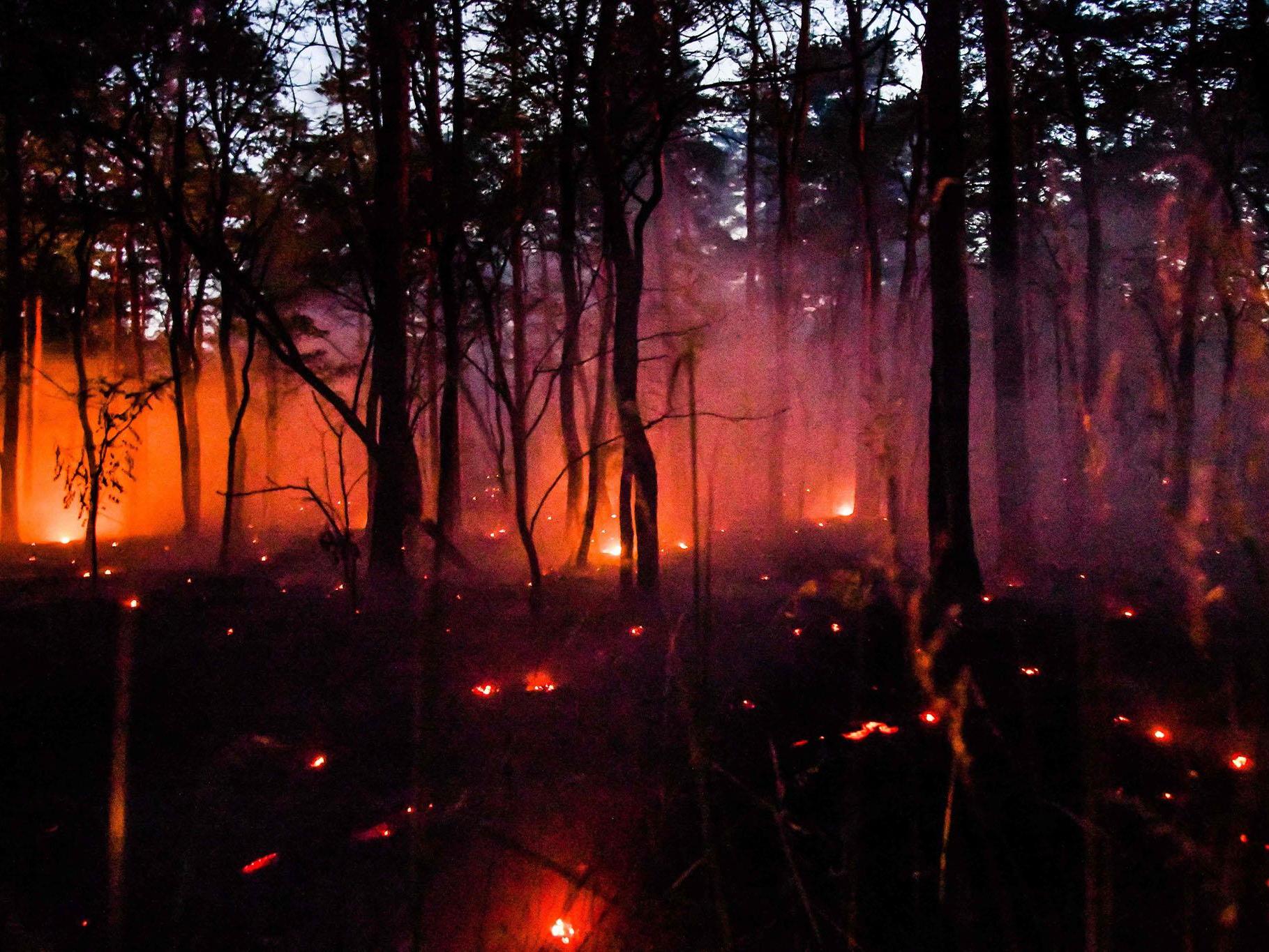Deadly European heatwave up to 100 times more likely due to climate change, report concludes
Record-breaking temperatures show crisis ‘is happening here and now’

The deadly heatwave across much of Europe last week was made up to 100 times more likely by climate change, scientists say.
Heatwaves in June are also about 4C hotter than a century ago, according to rapid analysis by climate scientists at the World Weather Attribution group.
Their report, which has not been peer reviewed yet, also found that the heatwaves hitting Europe are more frequent and more severe than climate models predicted.
The findings came as new data showed that the average European temperature last month was higher than any other June on record.
The global-average temperature for June was the highest on record for the month, according to the European Union's satellite agency.
Wildfires sweep Spain in historic Europe heatwave: In pictures
Show all 10Notably, France recorded its all-time highest temperature of 45.9C in the southern village of Gallargues-le-Montueux last week. This was more than 1.5C above the previous high mark.
Local records were also broken for the hottest temperature in June in Switzerland, Austria, Germany and Spain.
The searing heat saw wildfires spread across Spain as thousands of schools closed in France and a speed limit was imposed on parts of the German Autobahn.
Four people died in drowning accidents attributed to thermal shock in the south of France, according to the French Ministry of Solidarity and Health.
At least two people in Spain and three people in Italy also suffered heat-related deaths in the same week.
Researchers used computer models to calculate the temperatures we would expect to see in France with 1C of warming – our current level above pre-industrial temperatures – and what they say it would have been without human influence.
They then looked at the average temperature between 26-28 June, when the highest temperatures were recorded, in the French city of Toulouse and France as a whole. Researchers compared these observations with the models.
The results showed that climate change made the probability of the heatwave at least five times more likely.
But they said the real world temperature data shows the probability could have been increased by as much as 100 times.
Dr Friederike Otto of the University of Oxford, who is one of the authors of the study, said: “This is a strong reminder again, that climate change is happening here and now. It is not a problem for our kids only. These numbers show very clearly that large scale projections are indicative at best of local climate change. If we want to understand what climate change means locally we have to bring different lines of evidence together, at the local scale where decisions are made.”
Dr Robert Vautard, at the French national centre for scientific research, said: "We experienced a heatwave whose intensity could become the norm in the middle of the century"
He added: "The new record of 45.9C set in France last Friday is one more step to confirmation that, without urgent climate mitigation actions, temperatures in France could potentially rise to about 50°C or more in France by the end of the century. Upper air made a long-distance, direct and rapid travel from Sahara to Europe, a fairly exceptional situation which is, however, not resulting from climate change."
The researchers believe that if global warming continues to the 2C level envisioned in the Paris climate agreement, heatwaves like the one experienced last week will become the norm in June.
There have been more than 230 attribution studies to date around the world examining whether climate change is making particular weather events more likely.
Subscribe to Independent Premium to bookmark this article
Want to bookmark your favourite articles and stories to read or reference later? Start your Independent Premium subscription today.

Join our commenting forum
Join thought-provoking conversations, follow other Independent readers and see their replies